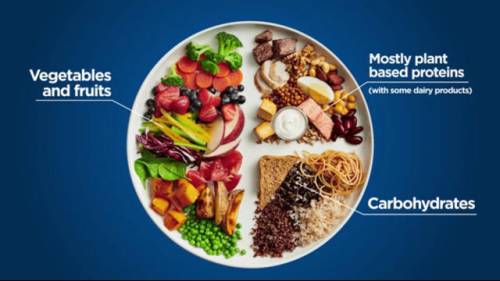‘Where are we going? What am I doing in this hand basket?’
It’s looking pretty bleak out there, and many of us are asking ourselves what
we can do about it. Well it so happens that changing the way we eat can have a profound effect on the planet. Much of our food is dominated by meat products and processed foods, which require lots of energy to produce, process and package. Worldwide, livestock is the cause of 15% of the climate crisis and it is also responsible for vast areas of deforestation.
The Globe and Mail recently reported that 58% of food produced in Canada is wasted or lost during production and processing, of which 32% could be rescued to help communities. It was initially thought that households were mainly responsible for most of the food waste, but this turns out to be untrue.
This is a shocking waste of the resources- land, water and fertilizer required to produce the food, and food that winds up in a landfill also releases methane, a powerful greenhouse gas that contributes to climate change.
In response to frightening statistics for obesity, diabetes and heart disease, Canada has just revised its food guide, making it really simple to understand and follow. Half the plate with fruits and vegetables, one quarter with protein foods (a mix of meats, fish, cheese, legumes and nuts) and one quarter whole grain foods.

This reflects the recommendations of the EAT-Lancet Commission on Food, Planet and Health which brought together 30 world-leading scientists from across the globe to reach a scientific consensus that defines a healthy and sustainable diet. Healthy eating behaviours are also recommended:
*Be mindful of your eating habits
*Cook more often
*Eat with others
*Read food labels
*Limit foods high in sodium, sugars or saturated fats
*Be aware of food marketing (‘nutritionism’)
Today’s younger generation loves watching cooking shows, but they don’t want to cook, and are more interested in taking photos of their food than eating it. Skip the Dishes and Uber have teamed up to deliver ready-to-eat food to your door, and meal kits have grown into a $120-million industry in Canada. Food is visual, making social media platforms like Pinterest and Instagram huge drivers of food trends, which move much faster than they used to.
The good news is that young people are willing to change their diets to help the planet. More than 250,000 people in 193 countries signed up this year to participate in VEGANUARY, to eat no animal products during the month of January.
A&W’s Beyond Burger is outselling its meat burgers, and in the US the Impossible Foods burger is fooling even meat connoisseurs. It’s a mixture of potato and wheat, coconut fat, Japanese yam, vegetable broth, xanthan gum, sugars and amino acids and a protein called leghemoglobin which makes it bleed!
The Impossible Burger uses 95% less land and 74% less water than a conventional burger, and the greenhouse gas emissions generated in creating it are 13% of making a beef burger.
Soil holds four times more carbon than all the plants and trees in the world, but industrial farming has so damaged our soils that a third of the world’s farmland has been destroyed in the past four decades.
Now 40% of agricultural soil is classed as “degraded” or “seriously degraded”. Industrial farming with its intensive ploughing, monoculture and heavy use of chemical fertilizers and pesticides is ruining our soils at breakneck speed.
Scientists and farmers around the world are telling us that we can regenerate degraded soils by switching from intensive industrial farming to more ecological methods, not just organic fertilizer, but also no-tillage, composting and crop rotation.
Here’s the brilliant part – as the soils recover they not only regain their capacity to hold CO2, they also begin to pull additional CO2 out of the atmosphere. A big solution to the climate change is to go organic.
The good news is that by focusing our diets on organic vegetables and fruits, whole grains and unprocessed foods we can improve the health of the planet and avoid going to hell in a handbasket!
 Carolyn Herriot is author of The Zero Mile Diet and The Zero Mile Diet Cookbook Available at your local bookstore.
Carolyn Herriot is author of The Zero Mile Diet and The Zero Mile Diet Cookbook Available at your local bookstore.
She grows IncrEdibles! in Yellow Point.
www.harbourpublishing.com/title/ZeroMileDiet
See all articles by Carolyn Herriot



